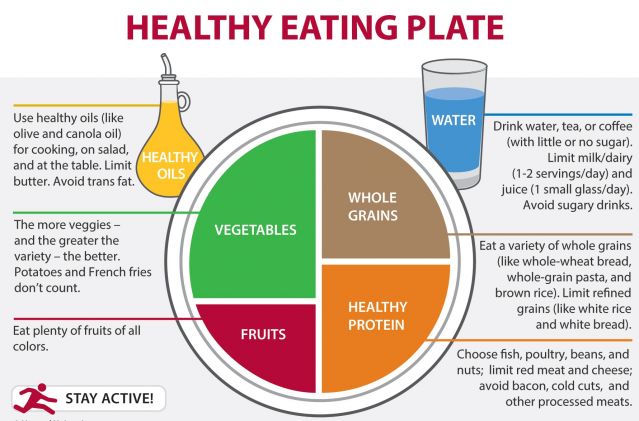Diet
Physically Fit Fathers May Have Healthier Children
Fathers should strive to be as fit as possible before conceiving a baby.
Posted January 20, 2014

Are you—or someone you know—planning on becoming a father anytime soon? If so, please read this and share it with anyone who is planning to become a dad in the near future.
Until recently, the emphasis for a baby’s healthy development has focused on the mother’s health throughout a pregnancy. However, in the past few years there have been a wide range of studies showing that the physical health and fitness of the father at the moment of conception can greatly impact the physical health of his offspring.
There is growing scientific evidence in human and animal studies that should inspire every father-to-be to start exercising more and eating healthier before conceiving a baby. A wide range of studies have found that fathers who are obese at the time of conception pass on a predisposition to their children and grandchildren to be overweight, to develop diabetes, or both.
To break this cycle for generations to come, it’s equally important for mothers and fathers to eat healthier and get in the best physical shape possible before deciding to fertilize an egg and create an embryo.
As the father of a 6-year-old, I feel as though my daughter lucked out. By coincidence, I was making healthy lifestyle choices in the years and months leading up to her conception. At the time, this scientific knowledge did not exist.
Like every parent trying to have a baby until recently, my daugher's mother and I didn’t know that my diet, percentage body fat, and overall state of physical fitness was genetically coded into my sperm. Current research shows that my daily habits of diet and exercise had the power to impact our daughter's future odds of being healthy and not predisposed to become obese or develop diabetes.
Potential Fathers Who Are Obese and Eat a High-Fat Diet May Be Sabotaging Their Offspring
In a study from July 2013, scientists discovered that mice of obese fathers—even those who did not show any signs of diabetes—most frequently passed the trait to become obese and develop diabetes to their female offspring. Sons don't entirely dodge this genetic bullet either—both male and female offfspring of obese mouse fathers have increased risks of developing metabolic diseases, such as diabetes.
In animal studies, researchers have found that children who were conceived from the sperm of an obese father who consumed a high-fat diet, showed a poor ability to respond to a glucose challenge, even while eating a healthy diet. The offspring of obese mouse fathers on a high-fat diet showed gene expressions that changed pancreatic islets, which are responsible for producing insulin to control blood glucose and the fat tissue of their female offspring.

"If these findings hold true in humans, then a father's diet and body composition at the time of conception is likely to affect his future child's health and risk of lifelong disease," said Tod Fullston, Ph.D., a researcher involved in the work from the Department of Obstetrics & Gynaecology at the Robinson Institute, Research Centre for Reproductive Health at the University of Adelaide in South Australia. "Fathers should aim to be as healthy as possible at the time of conception to give future generations the best possible chance of good health."
To make this discovery, Fullston and colleagues used two groups of male mice. One was fed a high-fat diet that resembled a "fast food" diet and the other was fed a nutritious control diet. When compared to the control group, the group fed the "fast food" diet gained weight and had an increase in fat (obesity) without any indications of diabetes.
The two groups of male mice were then mated to normal weight control diet-fed females to produce first generation mice, which were also mated to normal weight control diet-fed mice to produce the second generation. Both generations of mouse offspring had metabolic disorders and obesity, with the only difference being their father's/grandfather's diet, although male/female offspring had different health problems.
By comparing small RNA molecules (microRNAs) in sperm from the obese mice as compared to the control mice, researchers deduced that changes in these molecules might be partly responsible for the transmission of these conditions from father to offspring. This suggests that one's diet changes the molecular makeup of sperm, which in turn, program embryos and their risk of metabolic and reproductive health problems. The research also suggests that these adverse health outcomes may be transmitted into the second generation as well.
Boys May Be More Susceptible to Obesity Due to a Father’s High-Fat Diet
In another study from June 2013, researchers at Ohio University found that male mice who were fed a high-fat diet and became obese were more likely to father offspring who also had higher levels of body fat. The effect was observed primarily in the male offspring. Unfortunately, the researchers also discovered that even if they consumed a low-fat diet, these offspring had a built in predisposition to have higher percentages of body fat.

The effect of parents' diet and weight on children has been well-established in humans, Felicia Nowak explained, but scientists have been studying the issue in mice to learn more about the biological mechanisms behind the phenomenon. "We've identified a number of traits that may affect metabolism and behavior of offspring dependent on the pre-conception diet of the father," said Nowak, an associate professor of biomedical sciences in Ohio University's Heritage College of Osteopathic Medicine who was lead author on the study.
The researchers believe the cause is something called epigenetics which is the way genes are expressed, as opposed to mutations in DNA that are "hard-wired into the genes.” Luckily, these types of gene expression are impacted by environmental and lifestyle factors, this finding suggests that individuals with obese fathers can be proactive and address health concerns to change outcomes for offspring.
Girls May Be More Susceptible to Changes in Metabolic Function Due to Father’s High-Fat Diet
Another animal study from January 2014 found that there is a strong biological link between a father’s diet, body weight and health at the time of conception and the health of his offspring. The report titled, "Paternal High-Fat Diet Consumption Induces Common Changes in the Transcriptomes of Retroperitoneal Adipose and Pancreatic Islet Tissues in Female Rat Offspring” was published online in The FASEB Journal.
The scientists found that male rats that ate a high fat diet, had diabetes and were obese, produced offspring that had altered gene expression in two important metabolic tissues. This altered gene expression may increase the risk of future obesity and diabetes.
Other genes that were affected by the fitness of the father at the time of conception included:
- Markers of Premature Aging
- Cancer
- Chronic Degenerative Disease
Conclusion: Potential Fathers Should Motivate Themselves to Exercise More and Eat Healthier

"While scientists have focused on how the maternal diet affects children's health, this study is part of exciting new research exploring the impact of paternal diet on offspring risk of obesity," concluded Margaret Morris, Ph.D., a researcher involved in the work from the Pharmacology School of Medical Sciences at the University of New South Wales in Sydney, Australia. "The fact that similar gene markers were affected in pancreas and fat tissue tells us that some of the same pathways are being influenced, possibly from the earliest stages of life. It will be important to follow up these findings, and to learn more about when and how to intervene to reduce the impact of poor paternal metabolic health on offspring."
"For a long time, we've known that the nutrition and health status of women who are pregnant or who want to get pregnant is critical to the health of her offspring, and we've also suspected that the same is true for fathers to a lesser degree," said Gerald Weissmann, M.D., Editor-in-Chief of The FASEB Journal. "This report is the first step in understanding exactly how the nutrition and health of fathers affects his children, for better or worse."
These studies are discouraging in that they illustrate the double-whammy that children who happened to be born to a father who was obese, had diabetes and ate a high fat diet prior to conception may be predisposed for obestity and diabetes. That said, epigenetics and neural plasticity reaffirm that change is always possible. Everyone has the power to make lifestyle choices starting today that will improve your well-being regardless of genetic predispositions.
Knowledge can be inspiring. Hopefully, these findings will motivate potential fathers to take responsibility for the future well-being of their offspring by making healthier habits a part of the daily routine starting today.
If you'd like to read more on this topic, check out my Psychology Today blog posts:
- “25 Studies Confirm: Exercise Prevents Depression”
- “Exercising at a “Conversational Pace” Is Good for Your Brain”
- “4 Lifestyle Choices That Will Keep You Young”
- “Why Is Dancing So Good for Your Brain?”
- “What Daily Habit Can Boost “Healthy Aging” Odds Sevenfold?”
- “New Rules For a Healthy Heart”
- "The Brain Benefits of Healthy Diet and Fitness in Early Life"
- “Early Loving Touch Makes a Lifetime of Difference for a Baby”
Please follow me on Twitter @ckbergland for updates on The Athlete’s Way blog posts.




